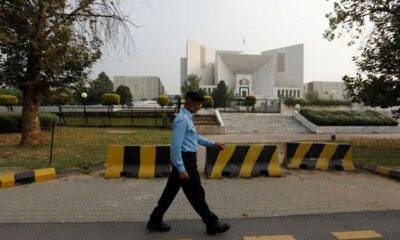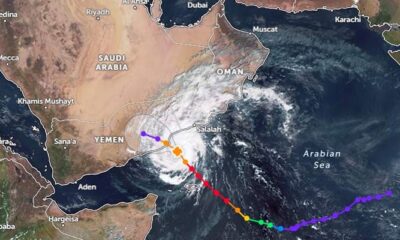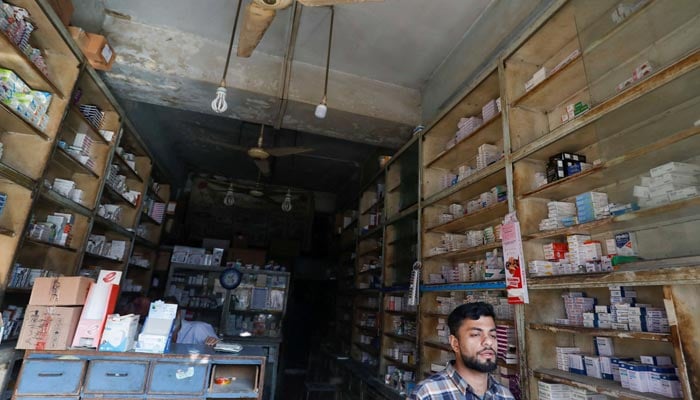Latest News
The devastating impact of rising fuel prices
Published
4 years agoon
By

In Pakistan, petroleum prices were raised yet again to Rs248.74 per litre for petrol and Rs 276.54 for diesel. This is the fourth time petroleum prices have been raised in a period of 1-1.5 months under IMF guidelines or pressure.
Subsidies have been eliminated almost altogether, although there may be some residual subsidies that are to be adjusted. The agreement with the IMF requires full price recovery plus PLD taxation of Rs30-50 per litre and GST of 17%. This means more has yet to come.
While the elimination of subsidies may be a rational and reasonable IMF requirement, demanding PLD and GST in such an abrupt manner when international oil prices are extremely high, is rather ruthless and shows a high degree of insensitivity to the poor of this country.
While in USD terms, Pakistan prices may not be so high, in local rupee terms, the current prices are more than 100% of the usual prices and have increased rather abruptly. The wages of the poor, however, have not increased at all and cannot increase in tight economic circumstances.
The IMF can very well argue that it is Pakistan which has brought its economy to a level that it had to approach the Fund. And it is not the first time that Pakistan has gone to the IMF. This is the 16th or 17th time an IMF loan is being sought over the last 30 years or so. Successive governments in Pakistan have been pursuing an elite agenda, not collecting taxes and extending subsidies that benefit the rich and powerful.
The question the IMF must consider: how is any of this the fault of the poor? The poor in Pakistan should have resisted and revolted.
The fact is that Pakistan has no choice. It has to accept the IMF conditions or be ready to face default. The default may not be a good idea, although some nihilist but respectable economists have argued in favour of default rather than meeting the IMF conditions.
Let us come back to the petroleum pricing issue. One way of answering the price growth issue is to look at the prices in comparable countries or in the region. In India, the current average/typical gasoline prices are at Pak Rs277 per litre. Indian prices have always been higher than Pakistan, for which there is no apparent reason except for higher taxation in India.
Otherwise, the Indian petroleum industry is much larger and more efficient than Pakistan’s. India exports petroleum and is highly competitive, although not much is known here about India; financing military expenditure and cross-subsidizing exports could be some of the possible reasons. It should be noted that India is getting 30% cheaper crude oil from Russia. However, it may not be more than 10% of their current requirement. It is on the rise though by the day.
The lowest petroleum prices in the region are in Bangladesh. The Bangladesh government has started indicating that subsidies are becoming unsustainable. An oil price rise is expected there. In most countries, diesel prices have been kept lower than that of gasoline on the simple premise of public use of diesel in passenger transport and goods traffic.
In Pakistan, for one reason or the other, this logic has not been accepted. However, the current high diesel prices in Pakistan are due to high diesel prices. We have to put off this discussion for a later date when prices stabilize. It may be noted that in Sri Lanka, despite the widely known economic conditions and default, diesel prices are still lower than in Pakistan and elsewhere except in Bangladesh. Both Bangladesh and Srilanka have maintained quite low diesel prices. Export competitiveness appears to be the major driver in their energy pricing policies.
In the US, petroleum prices have been lower than elsewhere in the advanced countries due to the highly competitive oil industry and local abundance of oil production. American benchmark crude oil prices have always been lower than elsewhere. The US retail prices of petroleum products have always been considered benchmark prices.
This time, diesel prices are 10 per cent higher than gasoline in the US. This is due to higher market prices of diesel which are a result of demand, supply and other issues. Usually, diesel and gasoline prices are almost the same in the US as opposed to Europe and other advanced countries.
In such a bleak scenario, there are very few options and prospects for good. However, there is a possibility that the oil price may go down. It may take a year or so to stabilize around $90-95 as indicated by future contracts.
The rupee may get strengthened as has happened recently among the good news of the IMF’s agreement finalization process. The rupee may improve if all other financial sources follow IMF funding. The government may be able to pass on the savings to the consumers or use it to meet other deficits and subsidies.
There are some cost reduction opportunities as well, however small these may be: efficient buying, reduction of demurrage and other losses, and negotiating fair margins by the oil refineries and E&P companies.
An unfortunate aspect of Pakistan’s local crude oil pricing formula is that the wellhead prices are paid at international prices. There is no price advantage. As foreign oil producers are squeezing us, local ones are doing the same, even when it is public-sector companies. Similarly, oil refineries are making hay while the sun shines.
There is an S-curve ceiling and flour pricing formula in the case of local gas. Why is this not so for oil? It would protect both the producer and the consumer. Reportedly, there is a windfall profit formula which apparently has not been activated. Every penny is important in the energy business, as it is consumed in millions and billions of units; be it barrels, cubic feet, kWh or MMBtu.
Finally, how to protect the poor from such excruciating prices? We have been proposing for quite a while a low-price gasoline brand for motorcycles and smaller and older vehicles. This is a low–RON gasoline. Apart from being cheaper, it provides direct and targeted subsidies for the needy.
IMF supports targeted subsidies but opposes unintended benefits for high-income groups. The government of Pakistan has not yet been able to make a decision about this. Instead, it has announced a stipend of Rs2000. This has not yet been implemented or is not visible.
This was announced simultaneously with the increase of the first Rs30 increase. There is a need to suitably enhance this amount.
Energy conservation measures have been announced which may reduce consumption, although that does not directly affect prices. However, a reduction in consumption would reduce imports, reduce the current account deficit and affect the exchange rate in a positive manner. Reduced exchange rates would also reduce retail oil prices. The price raise itself may reduce demand. On the lighter side, all poisons have antidotes.
The writer is a former member of the Energy Planning Commission. Email: akhtarali1949@gmail.com.
You may like
-


Supreme Court annuls trials of civilians in military courts
-


Sea conditions ‘very high’ as Cyclone Tej moves towards northwestward
-


IMF condition: ECC set to green light gas tariff hike today
-


UN experts claim Israeli actions in Gaza ‘violation of international humanitarian law’
-


Arshad Sharif’s wife files lawsuit against Kenyan police over journalist’s killing
-


World Cup 2023: Pakistan opt to bowl first against Australia after winning toss

In a unanimous verdict, a five-member bench of the Supreme Court on Monday declared civilians’ trials in military courts null and void as it admitted the petitions challenging the trial of civilians involved in the May 9 riots triggered by the arrest of Pakistan Tehreek-e-Insaf (PTI) chief Imran Khan in a corruption case.
The five-member apex court bench — headed by Justice Ijaz Ul Ahsan, and comprising Justice Munib Akhtar, Justice Yahya Afridi, Justice Sayyed Mazahar Ali Akbar Naqvi and Justice Ayesha Malik — heard the petitions filed by the PTI chief and others on Monday.
The larger bench in its short verdict ordered that 102 accused arrested under the Army Act be tried in the criminal court and ruled that the trial of any civilian if held in military court has been declared null and void.
The apex court had reserved the verdict earlier today after Attorney General of Pakistan (AGP) Mansoor Usman Awan completed his arguments centred around the domain and scope of the military courts to try the civilians under the Army Act.
At the outset of the hearing today, petitioner lawyer Salman Akram Raja told the bench that trials of civilians already commenced before the top court’s verdict in the matter.
Responding to this, Justice Ahsan said the method of conducting proceedings of the case would be settled after Attorney General of Pakistan (AGP) Mansoor Usman Awan completed his arguments.
Presenting his arguments, the AGP said he would explain to the court why a constitutional amendment was necessary to form military courts in 2015 to try the terrorists.
Responding to Justice Ahsan’s query, AGP Awan said the accused who were tried in military courts were local as well as foreign nationals.
He said the accused would be tried under Section 2 (1) (D) of the Official Secrets Act and a trial under the Army Act would fulfill all the requirements of a criminal case.
“The trial of the May 9 accused will be held in line with the procedure of a criminal court,” the AGP said.
The AGP said the 21st Amendment was passed because the terrorists did not fall in the ambit of the Army Act.
“Amendment was necessary for the trial of terrorists [then] why amendment not required for the civilians? At the time of the 21st constitutional amendment, did the accused attack the army or installations?” inquired Justice Ahsan.
AGP Awan replied that the 21st Amendment included a provision to try accused involved in attacking restricted areas.
“How do civilians come under the ambit of the Army Act?” Justice Ahsan asked the AGP.
Justice Malik asked AGP Awan to explain what does Article 8 of the Constitution say. “According to Article 8, legislation against fundamental rights cannot be sustained,” the AGP responded.
Justice Malik observed that the Army Act was enacted to establish discipline in the forces. “How can the law of discipline in the armed forces be applied to civilians?” she inquired.
The AGP responded by saying that discipline of the forces is an internal matter while obstructing armed forces from discharging duties is a separate issue.
He said any person facing the charges under the Army Act can be tried in military courts.
“The laws you [AGP] are referring to are related to army discipline,” Justice Ahsan said.
Justice Malik inquired whether the provision of fundamental rights be left to the will of Parliament.
“The Constitution ensures the provision of fundamental rights at all costs,” she added.
If the court opened this door then even a traffic signal violator will be deprived of his fundamental rights, Justice Malik said.
The AGP told the bench that court-martial is not an established court under Article 175 of the Constitution.
At which, Justice Ahsan said court martials are not under Article 175 but are courts established under the Constitution and Law.
After hearing the arguments, the bench reserved the verdict on the petitions.
A day earlier, the federal government informed the apex court that the military trials of civilians had already commenced.
After concluding the hearing, Justice Ahsan hinted at issuing a short order on the petitions.
The government told the court about the development related to trials in the military court in a miscellaneous application following orders of the top court on August 3, highlighting that at least 102 people were taken into custody due to their involvement in the attacks on military installations and establishments.
Suspects express confidence in mly courts
The same day, expressing their “faith and confidence” in military authorities, nine of the May 9 suspects — who are currently in army’s custody — moved the Supreme Court, seeking an order for their trial in the military court be proceeded and concluded expeditiously to “meet the ends of justice”.
Nine out of more than 100 suspects, who were in the army’s custody, filed their petitions in the apex court via an advocate-on-record.
The May 9 riots were triggered almost across the country after former prime minister Imran Khan’s — who was removed from office via a vote of no confidence in April last year — arrest in the £190 million settlement case. Hundreds of PTI workers and senior leaders were put behind bars for their involvement in violence and attacks on military installations.
Last hearing
In response to the move by the then-government and military to try the May 9 protestors in military courts, PTI Chairman Imran Khan, former chief justice Jawwad S Khawaja, lawyer Aitzaz Ahsan, and five civil society members, including Pakistan Institute of Labour Education and Research (Piler) Executive Director Karamat Ali, requested the apex court to declare the military trials “unconstitutional”.
The initial hearings were marred by objections on the bench formation and recusals by the judges. Eventually, the six-member bench heard the petitions.
However, in the last hearing on August 3, the then-chief justice Umar Ata Bandial said the apex court would stop the country’s army from resorting to any unconstitutional moves while hearing the pleas challenging the trial of civilians in military courts.
A six-member bench, led by the CJP and comprising Justice Ijaz Ul Ahsan, Justice Munib Akhtar, Justice Yahya Afridi, Justice Sayyed Mazahar Ali Akbar Naqvi, and Justice Ayesha Malik, heard the case.
In the last hearing, the case was adjourned indefinitely after the Attorney General for Pakistan (AGP) Mansoor Usman Awan assured the then CJP that the military trials would not proceed without informing the apex court.

YouTube’s famous couple Sham Idrees and Froggy aka Sehar are taking sometime away from each other in their relationship.
Sham, taking it to his Instagram, left his fans in a shock after announcing his separation with Froggy. He wrote: “I would like to announce that me and froggy are taking sometime away from each other in our relationship. Please don’t involve me in issues concerning froggy, rabil or any of the other family members. I appreciate some privacy during this difficult time.”
Sham is a Canadian based YouTuber, who has a following of 1.4 million people on Instagram, is widely-known for his entertaining content. His videos often feature his wife Sehar along with him.
The couple tied the knot a few years ago and is parents to baby Sierra who is two-years old. The duo welcomed another daughter on September 28, 2022. They named her Shanaya Idrees.
After the birth of his first daughter, Sham Idrees also introduced his fans to his daughter Dua from his previous marriage.

- Minister says power generation units are temporarily shut in winter at night.
- Says frequency variation in national grid triggered outage.
- Says ministry trying to restore power in next 12 hours.
LAHORE/KARACHI/QUETTA/ISLAMABAD: A countrywide power breakdown, triggered by a “frequency variation” in the national grid early Monday morning, has left large parts of the country including Karachi, Lahore, Islamabad, Peshawar and Quetta without electricity.
Power Minister Khurrum Dastagir, while talking to Geo News, said that the power generation units are temporarily shut down in winter at night as an economic measure to save fuel costs.
“When the systems were turned on at 7:30am this morning one by one, frequency variation was reported in the southern part of the country between Jamshoro and Dadu. There was a fluctuation in voltage and power generating units were shut down one by one due to cascading impact. This is not a major crisis,” said the federal minister as the country plunged into darkness for the second time in four months.
The minister said that his ministry has started restoring some grid stations in Tarbela and Warsak.
“Peshawar Electric Supply Company (PESCO) and some grids of Islamabad Electric Supply Company (IESCO) have already been restored,” claimed the minister.
Talking about the breakdown in Karachi, the minister said that the matter in the port city is complicated as it has a complete electric supply system.

“We provide K-Electric about 1,000-1,100 megawatts routinely, however, it will be restored within a few hours. It is not certain how long will it take to sort this issue. However, my target is to restore electricity in the country in the next 12 hours,” said the minister.
Before the energy ministry’s announcement, different power distribution companies had confirmed the breakdown.
According to Quetta Electric Supply Company (QESCO), the two transmission lines have tripped leaving 22 districts of Balochistan, including Quetta without power.
Karachi power update
Meanwhile, K-Electric spokesperson Imran Rana said that at approximately 7:34am today, the national grid experienced a loss of frequency, affecting the power supply to multiple cities across Pakistan
“This has also cascaded to KE’s network affecting power supply to Karachi,” Rana said, adding the KE’s network is safe and protected.
“Our teams are actively monitoring the situation and enabling restoration efforts.”
An IESCO spokesperson said that its 117 grid stations were without electricity.
Meanwhile, PESCO also confirmed the outage in areas where it supplies electricity.
This is the second time within four months that a country was hit by a major power breakdown.
NEPRA takes notice
The National Electric Power Regulatory Authority (NEPRA), in a statement, said that it has taken “serious notice” of the power outage and directed the National Transmission & Despatch Company (NTDC) to submit a “detailed report”.
The statement also said that the regulator has previously imposed fines on similar outages in the 2021 and 2022. It also shared that NEPRA has consistently issued directives and recommendations on tackling such events in future.
Previous breakdown
In October of last year, Karachi, Hyderabad, Sukkur, Quetta, Multan, and Faisalabad were hit by a power outage.
At that time, the power minister said that nearly 8,000 megawatts of power went offline.
Back then, Dastagir had said that the simultaneous faults in two power lines, which had triggered the breakdown, at the same time was concerning for the government. He had also announced that an in-depth inquiry was ordered and promised action.
A timeline of power breakdowns in Pakistan
The country’s generation and distribution network has suffered eight major power breakdowns during the last nine years.
In 2014 and 2017, nationwide blackouts were caused by a fault in Tarbela Power Station while fog, frequency variation and the Guddu Power Plant fault were blamed for breakdowns in 2015, 2018, 2019, 2021, 2022 and 2023.
Every time the party in power announced to conduct a comprehensive probe and vowed to rectify the issues but nothing has happened despite multiple inquiries.


Supreme Court annuls trials of civilians in military courts

Sea conditions ‘very high’ as Cyclone Tej moves towards northwestward

IMF condition: ECC set to green light gas tariff hike today

Barwaan Khiladi: Kinza Hashmi discusses her role as Alia

Snap launches tools for parents to monitor teens’ contacts

WATCH: Pakistani traveller deported from Dubai for damaging plane mid-air

Learn First | How to Create Amazon Seller Account in Pakistan – Step by Step

Sajjad Jani Funny Mushaira | Funny Poetry On Cars🚗 | Funny Videos | Sajjad Jani Official Team

